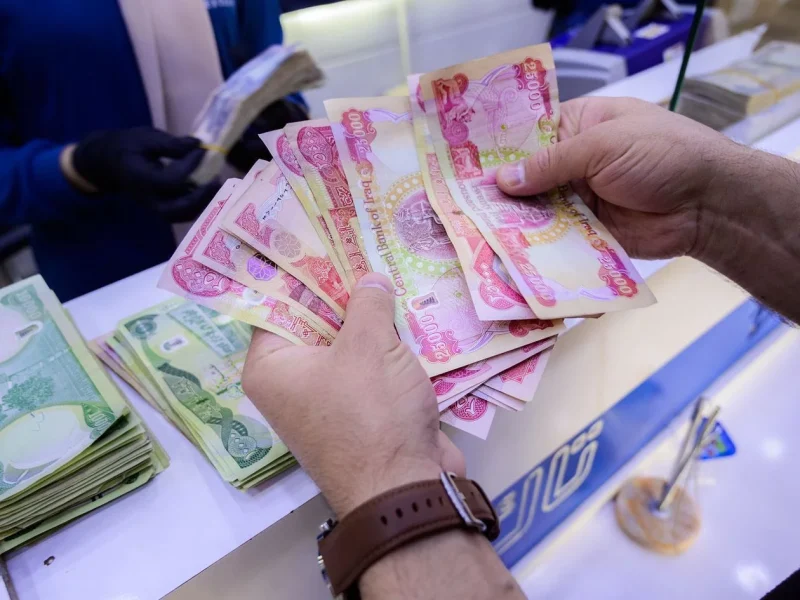
ERBIL, Kurdistan Region – Iraq’s money supply outside banks is causing concern among senior financial officials. According to a top advisor to the Iraqi prime minister, nearly 90 percent of the nation’s cash remains outside the formal banking system. This growing trend severely impacts the country’s financial health and long-term growth.
Mazhar Mohammed Salih, the prime minister’s economic advisor, explained the severity of the issue. He said that almost 91 to 92 trillion dinars—out of a total 100 trillion—are not in banks. This means that Iraq’s money supply outside banks continues to dominate the financial landscape.
He attributed this alarming pattern to several reasons. People mistrust banks. Many Iraqis also avoid interest-based accounts for religious reasons. Furthermore, many citizens are unfamiliar with banking procedures and services. As a result, they prefer to keep their savings at home.
Salih emphasized the effects of this situation. While the economy has money, banks face liquidity problems. The government also struggles, despite cash circulating widely in homes. Because funds remain idle, Iraq loses opportunities for economic growth and investment.
To address this, Salih proposed practical solutions. First, he urged the government to promote deposit insurance. Clear public communication can convince people that banks are safe. He also recommended investment in secure government bonds. These bonds, backed by strong guarantees, could attract savers.
Additionally, Salih called for digital transformation. He said that digital payments and electronic cards could bring people into the banking system. Such moves would increase financial inclusion and reduce reliance on cash.
Iraq’s money supply outside banks remains one of the biggest challenges to economic reform. According to Salih, resolving this issue is crucial. “The more money held in banks,” he said, “the better for the economy.”
However, problems go deeper. Iraq’s banking system suffers from outdated practices. Many banks rely on Central Bank currency auctions instead of productive investments. Corruption also persists, with accusations of money smuggling involving some banks.
Many customers face withdrawal limits and security risks. Weak legal protections discourage long-term deposits. Old regulations also block progress.
Most banks still focus on state-linked activities like currency exchange and public salary distribution. Their services remain limited when compared to international standards.
Even though digital banking is growing, progress is slow. The legal and technical infrastructure for e-payments is still developing. Most Iraqis convert digital salaries into cash. This reinforces the outdated belief that physical money is safer.
In conclusion, Iraq’s money supply outside banks reflects broader issues in the country’s financial system. Without strong reforms, economic progress will continue to stall.
